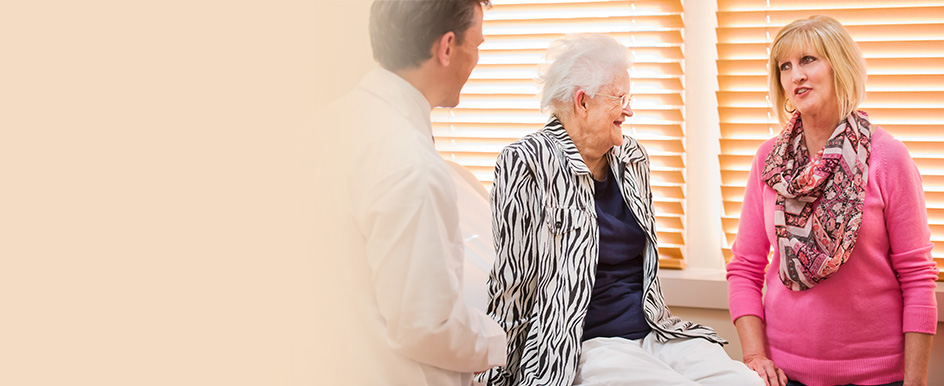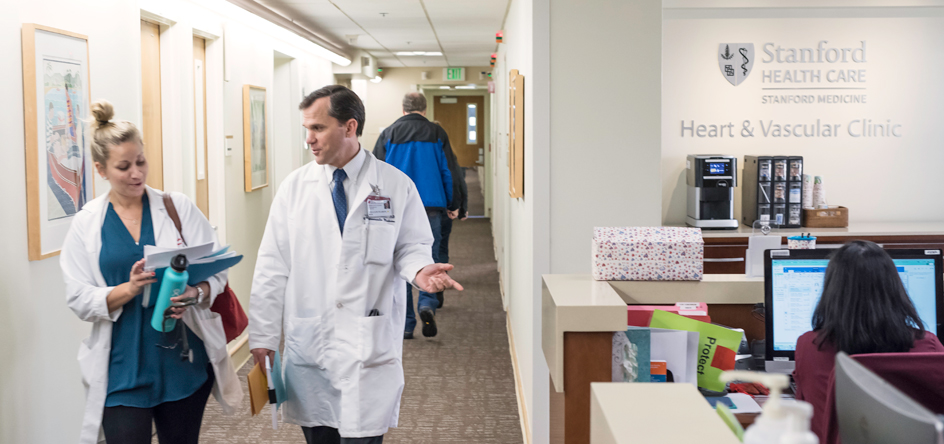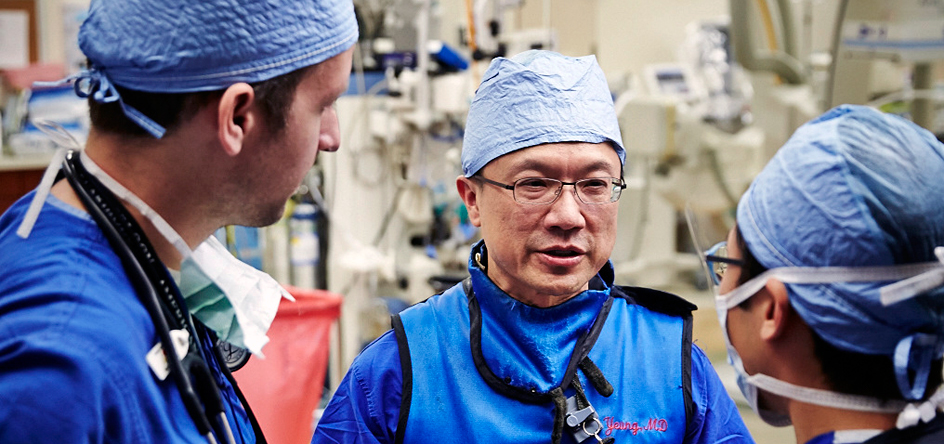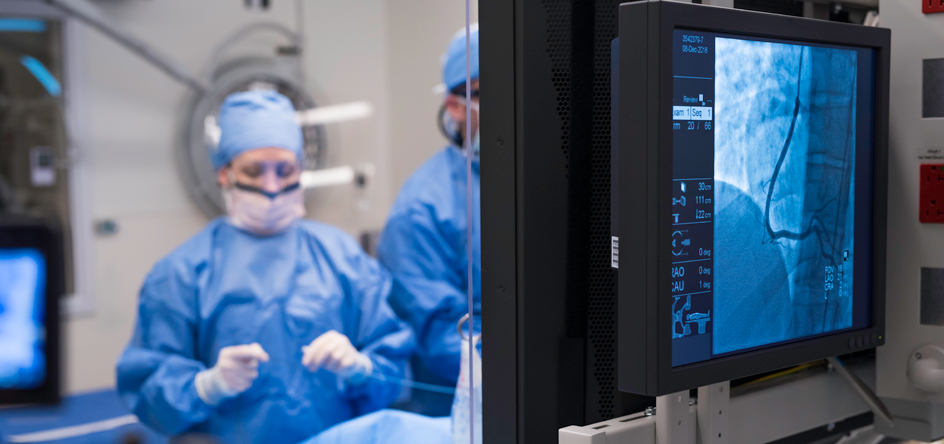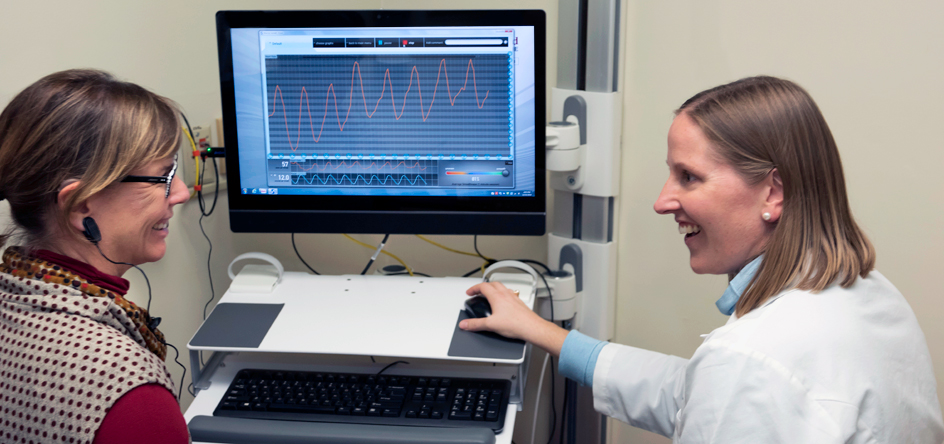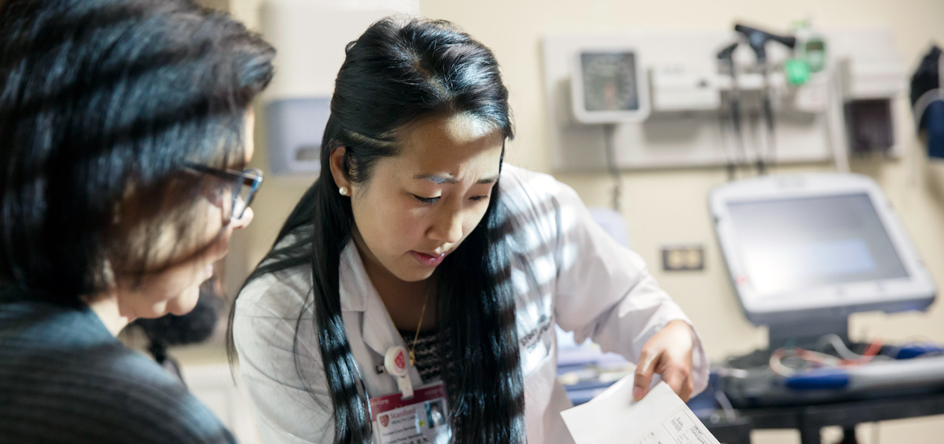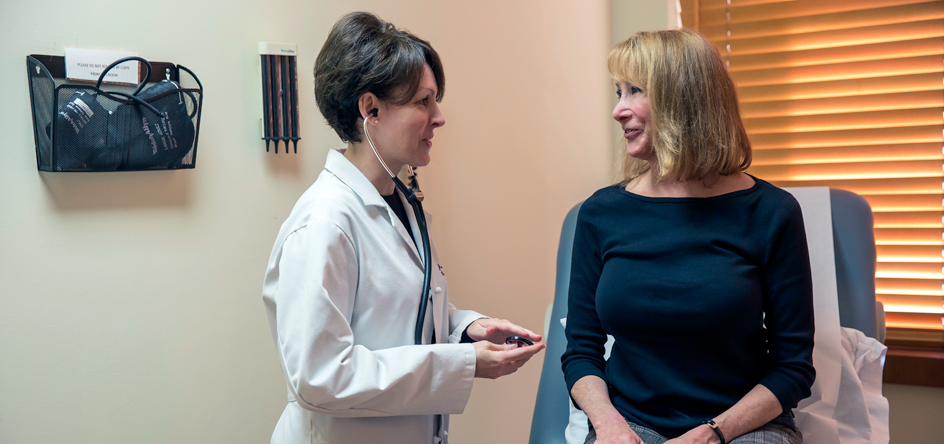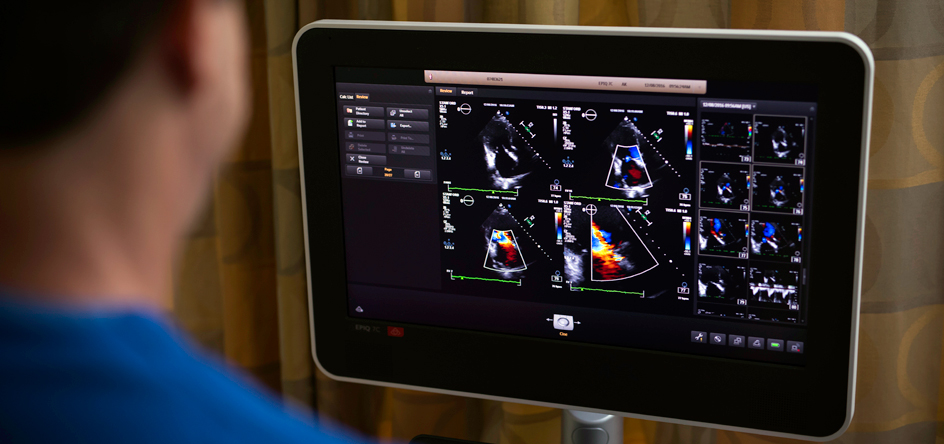Interventional Cardiology
Part of Cardiovascular Health
Leaders in Interventional Cardiology
We use interventional cardiology to diagnose many heart and vascular problems. Interventional cardiology also helps us avoid surgery with treatments like angioplasty and valve repair or replacement.
Our doctors invented many technologies used today and they continue to innovate the field to advance your care options.
What We Offer You for Interventional Cardiology Care
- Specialized expertise in treating coronary artery disease, valvular heart disease, congenital heart disease, and more. Go to Conditions Treated
- Advanced treatment options, from outpatient angioplasty to minimally invasive valve repair or replacement. Go to Treatments
- Clinical trials of promising therapies, providing you early access to new treatment options, when appropriate. Go to Clinical Trials
- Team-based approach, with experienced doctors from different specialties coming together to provide personalized care. Go to Your Care Team
- Comprehensive support for you and your family, from stress reduction to care coordination so you can focus on healing. Go to Support Services
- Ease of access to care, with timely appointments and specialists available by phone after-hours. Go to Accessing Care
Access to expertise in your local community through our network of Stanford Medicine affiliated doctors.
View Stanford Medicine affiliated doctors
Interventional cardiologists undergo additional training to access your heart through various arteries and veins, using thin tubes called catheters. All of our team’s core members are board-certified and fellowship-trained in interventional cardiology and have at least 10 years of experience.
Our doctors are experts in all forms of minimally invasive procedures to diagnose and treat heart disease and structural heart conditions. Through clinical research, they have helped develop many of today’s leading procedures.
Our interventional cardiology team offers numerous treatment options for heart and vascular conditions:
- Coronary artery disease (CAD)
- Valvular heart disease
- Structural and non-valvular heart disease
- Hypertrophic cardiomyopathy (HCM)
- Resistant hypertension
- Atrial septal defect
- Patent foramen ovale
We constantly search for better ways to protect your heart and blood vessels. In addition to seeing you at each visit, our doctors adopt the latest techniques and conduct leading-edge research. They push further, with a spirit of innovation that extends from the lab to your care at our clinic.
INNOVATION HIGHLIGHT
Advanced treatment option for high-risk patients with severe aortic stenosis
Our heart surgeons are among the most experienced in the country in transcatheter aortic valve replacement, or TAVR. This revolutionary procedure gives new hope to those who are too sick to have open heart surgery for aortic valve replacement.
HEART DISEASE IS PREVENTABLE.
Treatments
Our program offers a wide range of treatments that avoid open heart surgery, a number of which are not widely available.
Heart valve repair or replacement
Treatments for arteries
- Percutaneous coronary intervention (angioplasty and stenting)
- Hybrid coronary revascularization
- Complex coronary intervention for chronic total occlusions
Heart defect repair
Reduction of stroke risk
Lifestyle changes and medication
Our doctors may determine that medication alone is enough to treat your heart disease. We may also recommend lifestyle changes to control high blood pressure, diabetes, and other risk factors.
Treatment by Condition
Our team provides a broad range of the latest catheter-based treatments. Options depend on your diagnosis, as well as your unique needs.
- Heart attack
- Obstructed coronary artery disease
- Spontaneous coronary artery dissection (SCAD)
- Cardiogenic shock
- Aortic stenosis
- Mitral valve stenosis and regurgitation
- Prosthetic valve failure
Structural and non-valvular heart disease
Clinical Trials
Clinical trials for interventional cardiology evaluate promising techniques, test new stents and valves, and expand established treatments to more people. When appropriate, these studies may provide early access to the latest advances.
Open trials refer to studies currently recruiting participants or that may recruit participants in the near future. Closed trials are not currently enrolling, but similar studies may open in the future. To learn more about the clinical trials we offer, contact Maria Perlas at 650-725-5597. For TAVR trials, please contact Leigh Trautman at 650-725-3931.
Recent or ongoing research areas at Stanford include:
- Using a person’s own stem cells to:
- Treat cardiomyopathy and heart failure
- Restore cardiac muscle damaged by heart attack
- Relieve chest pain from obstructed coronary artery disease, when other treatments have not worked or are not possible
- Transcatheter aortic valve replacement (TAVR) for people with aortic stenosis and a low surgical risk
- Comparison of fractional flow reserve-guided percutaneous coronary intervention and coronary artery bypass graft surgery in patients with multi-vessel coronary artery disease (FAME 3 trial)
- Evaluation of bioresorbable [MOU1] scaffolds for stent procedures (ABSORB trial)
Our doctors work with you to develop an individualized plan that considers your goals, concerns, and particular challenges. Each week, our interventional cardiology team meets with surgeons, radiologists, imaging cardiologists, and nurse practitioners to thoroughly discuss cases. This team approach helps us share ideas and bring the latest clinical data to your care strategy.
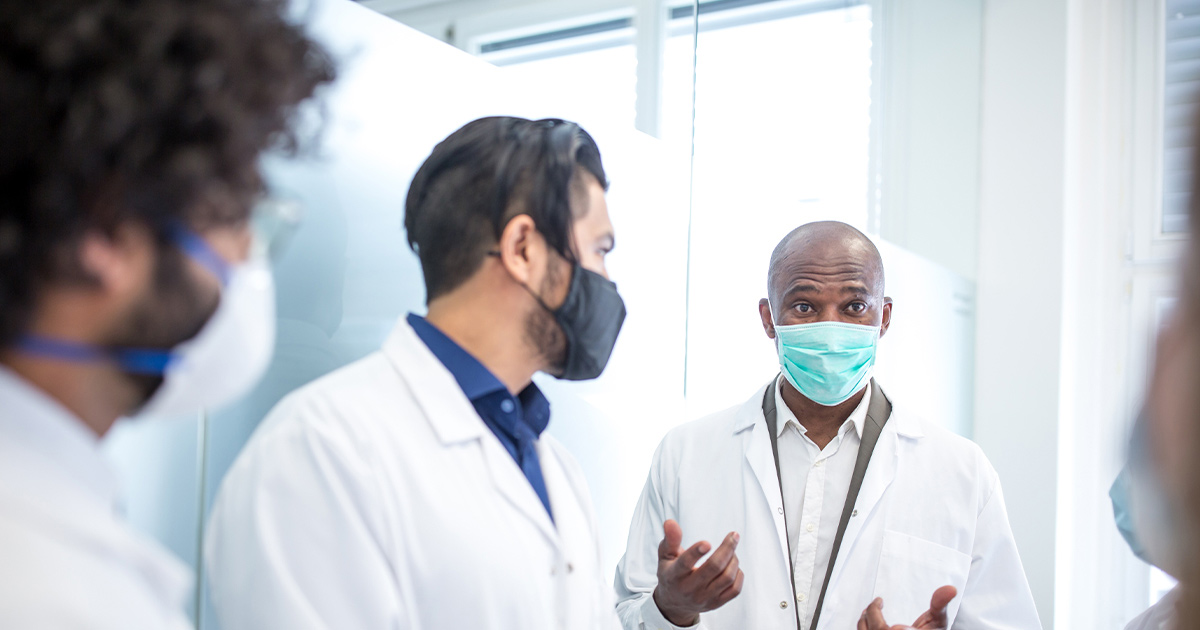
Your Doctors
Interventional Cardiologist
If you need heart care, you will likely work with an interventional cardiologist at some point. These doctors are specially trained cardiologists who can access your heart through an artery or vein using thin tubes called catheters. They can help with your initial consultation, diagnostic tests, or treatment.
View All {0} Interventional CardiologistsCardiothoracic Surgeons
Our interventional cardiologists collaborate with surgeons during your initial evaluation, to help you choose the best path of care. The two specialists also partner on newer, minimally invasive techniques, including transcatheter aortic valve replacement (TAVR) and hybrid coronary revascularization.
Nurse Practitioner
Nurse practitioners (NPs) are registered nurses (RNs) who have advanced education and clinical training. They can perform physical exams, diagnose and treat health problems, order lab work and X-rays, prescribe medicines, and provide health information.
View All {0} Nurse PractitionersClinical Nurse Specialist
A clinical nurse specialist is an advanced practice nurse who has completed graduate education. This specialist uses clinical expertise and research to improve patient outcomes. A clinical nurse specialist may devise and implement new strategies for nurses in a particular area, such as cancer, to improve patient care.
View All {0} Clinical Nurse SpecialistsStanford is an Academic Medical Center, which is a type of hospital setting where doctors teach medical students as they progress through medical school and training. Stanford Medicine is a partnership between Stanford University School of Medicine and Stanford Health Care. Since Stanford is a teaching hospital, you can expect to meet many providers and providers in training.
- Attending Physician: a doctor who supervises doctors in training or in medical school
- Fellow: a doctor doing postgraduate level work and specializing in care of patients with interventional cardiology needs
- Resident: a doctor who has graduated from medical school and is in training (also called “residency”) here at Stanford. A resident is also called an intern
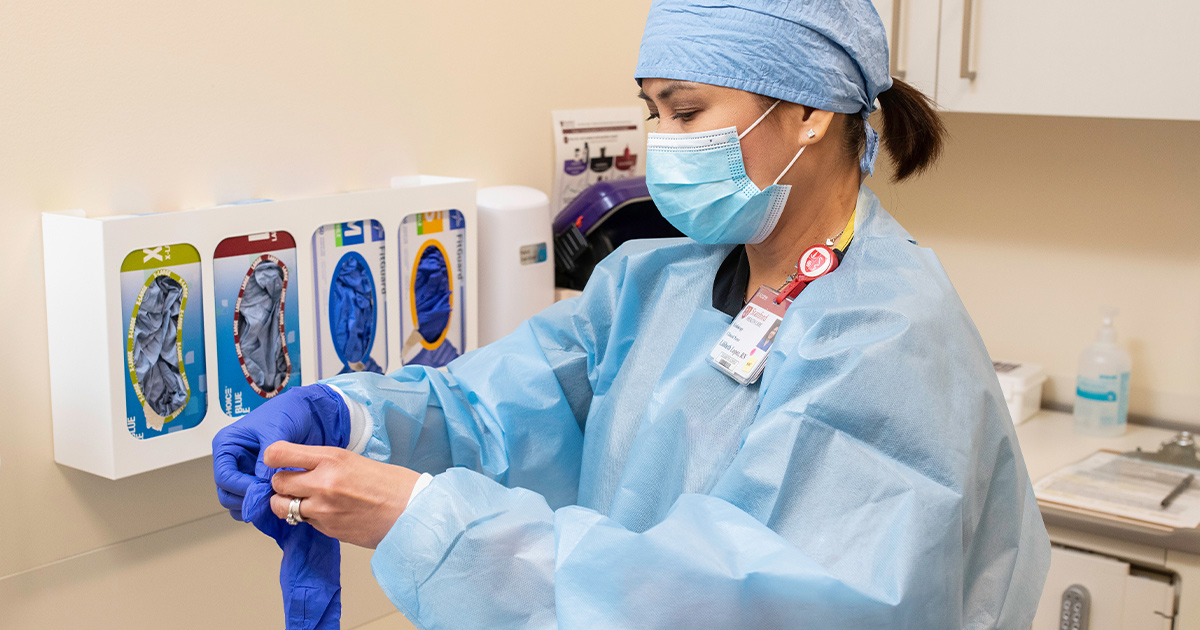
Extended Care Team
Nursing professionals manage all of your care, including appointment coordination, sharing your test results, and providing treatment. They also provide support and education so you and your family fully understand your care plan.
Nurse Coordinators
Nurse coordinators work closely with all members of the cardiovascular care team to coordinate your care throughout treatment. They also provide extensive education and support for you and your family.
NURSES
Clinical Nurses
Clinic nurses have specialty training in cardiac care and provide a range of services before, during, and after treatment. They also provide patient education to help you understand your treatment plan.
Device Nurses
Specialized nurses help you when you receive an implantable device to record your heart’s electrical activity or treat abnormal rhythms. They program your device, check its function, and capture and share data.
Technicians support your care by performing diagnostic tests. If needed, a device coordinator will help you get set up with an implantable device to monitor your heart’s activity from home.
Diagnostic Lab Technicians
Lab technicians support your care by performing diagnostic tests. They collect samples and analyze blood, tissue, urine, and other body substances to provide detailed information to help doctors identify your diagnosis.
Electrocardiogram (EKG) Technicians
These technicians use EKG equipment to test and monitor your heart’s electrical activity. Our technicians have years of expertise in all EKGs, including standard EKGs, exercise stress tests, and Holter monitoring.
Echosonographers
Echosonographers are experienced in heart ultrasound techniques and technology, including stress echo, 3-D echo, and Doppler echo. Echocardiography creates moving images of your heart to help doctors diagnose and treat your heart condition.
Device Coordinators
If you need an implantable device, our device coordinators help navigate the process before, during, and after the procedure. They provide education about your device, the implantation procedure, and ongoing home care.
Afib Prevention Program
The Afib Prevention Program evaluates patients for common risk factors, such as obesity, sleep apnea, hypertension, and diabetes, and works to identify non-surgical approaches to treat each person's afib symptoms.
Genetic Counselors
Cardiovascular genetic counselors in the Stanford Center for Inherited Cardiovascular Disease guide you through decision-making about genetic testing, family planning, and medical management. They also provide support and counseling to help you cope with having or being at risk for an inherited cardiovascular condition.
Psychologists
Our psychologists are behavioral medicine experts who specialize in cardiovascular medicine. They provide behavioral therapy and other services to help people living with a chronic heart condition or a heart device, such as a pacemaker or ICD.
Research Coordinators
Research nurse coordinators screen candidates who are eligible and willing to participate in our clinical research studies. They educate you about the process you will experience during the study and answer your questions.

Support Services
From our team approach to our full range of support services, our program focuses on your specific needs and preferences. Our nurse coordinators, case managers, and others dedicated staff will organize and manage your care from the start. We also offer a range of wellness programs to make your experience as comfortable as possible.
- Case Management
- Financial Counseling
- Guest Services
- Integrative Medicine (acupuncture, massage)
- Interpreter Services
- Lifestyle Modification Support
- Nutrition Services
- Psychologists with expertise in chronic heart conditions
- Spiritual Care
- Stanford Health Library
We go beyond offering specialized expertise and leading treatments to making our care accessible and convenient. Once contacted, we usually see people within a week, prioritizing those with more pressing needs. For many procedures, such as angioplasty, we can often safely send you home the same day so you do not need to stay in the hospital.
Convenient Care for All Your Cardiology Needs
To request an appointment with an interventional cardiologist, call 650-725-2621.

